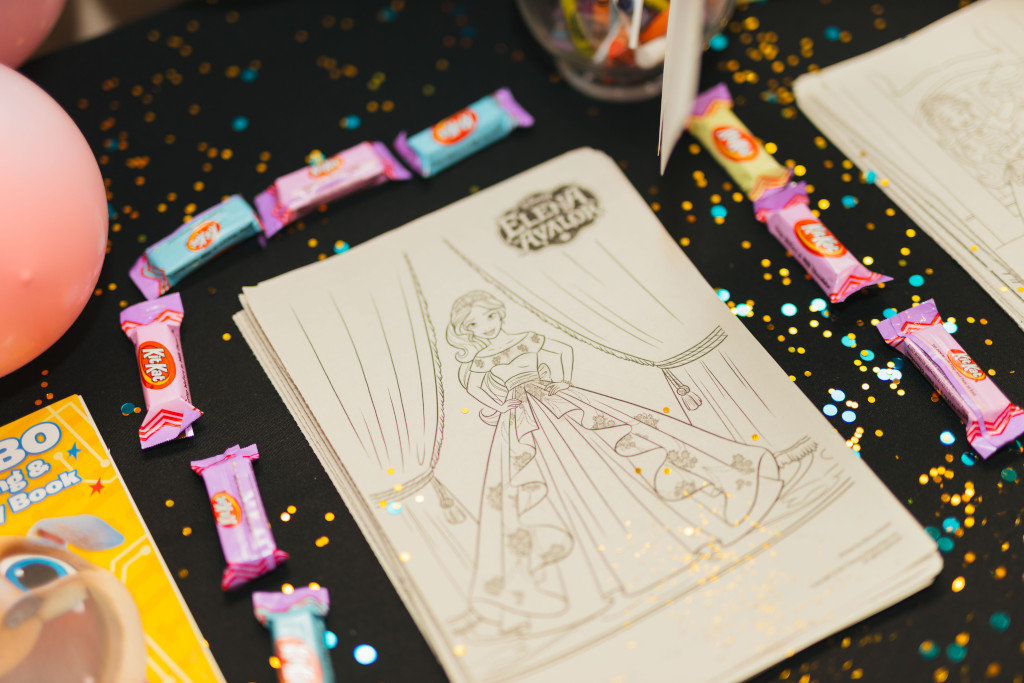SingaporeMotherhood | Parenting
May 2021
“Mum, Are We Rich?” – How Would You Respond?

“Mum, are we rich?” she asked. “How much do we have? Because my friend said she just found out her father has two million dollars!” How would you respond to a question like that?
Is money a topic we avoid because it can’t be explained in a couple of sentences? After all, kids will automatically learn about it along the way as they grow up, right? Or at least, that’s what we assume.
Consciously or unconsciously, parents shape our children’s world views. We influence their belief systems which set the boundaries for their success in life. But if you could consciously hardwire your child with positive financial blueprints, wouldn’t you?
(See also: “How Can I Raise Successful Kids during a Pandemic?”)
Different Strokes for Different Folks

My husband came from a humble background. He had to save every precious cent to buy his own toys, and he witnessed family members stealing from one another. Understandably, his money belief is that money is hard to come by. He also has an innate mistrust of people.
On the other hand, I grew up comfortably, with all my needs and wants easily met. That casual abundance has given me a deep-seated security for this resource. Also, seeing the world through rose-tinted lenses seems to attract positive opportunities in my life.
(See also: MediSave for Pregnancy and TTC – Financial Aid for Making Babies (2021 Update))
Against these two contrasting experiences, it became a priority to give our kids an ‘unfair’ advantage by anchoring them in positive money beliefs. Because as positive as our immediate environment is, society also leaves the imprint of its collective negative views on us. I am determined to consciously rewire these automatic negative mindsets, for me, and for my kids.
#1 – Money Can’t Buy You Happiness
This maxim claims that happiness can’t be bought. It is ironic that comfortable as I was, I subscribed to the notion that money had limitations. I’ve never chased branded goods or luxurious living — but I didn’t know why. Only recently did it dawn on me that I unconsciously avoided the materialistic pleasures money could provide because I had a deeper, unfulfilled longing.

It’s now clear to me that my choice of a cosy three-room HDB flat for our first home was to avoid coming back to an empty four-storey house. While my parents were generous with money during my growing years, I longed for a deeper emotional connection.
Becoming a mother strengthened this mindset because the simple act of seeing my child smile brings me so much joy. My husband affirmed this belief because his version of prosperity is harmony in the family. So for years, we lived simply. But the close confines also gave rise to conflict. I soon realised that the size of our home made little difference to the quality of relationships in it. We argued quite a bit, and again that emotional intimacy I desired was missing.
(See also: Should Your Kids Share a Bedroom?)
As our family grew, I began changing my mind. I wanted to give my children the comforts I experienced in my growing-up years, in tandem with my time. There had to be a happy medium, the best of both worlds. So we shifted into a condo and it has, really, brought us many happy moments. Watching the kids play in the pool together, have their friends over for barbecues, hearing their laughter from my study room as they skate or cycle (knowing they are safe within the compound) — it makes me smile.

So yes, money can buy you happiness, because money does afford more experiences. Family vacations and buffet feasts alike bring us joy. Having experienced materialism with little connection, I am sure that the right balance of both creates a sense of security for children to know that we can be happy in plenty or in want. Happiness is an inward choice and we can all do with more of it!
#2 – Money Doesn’t Grow on Trees
It may be a typical statement parents use as an excuse not to buy something their child wants. But the child is left feeling bad for even asking. They may also feel like they don’t matter when you purchase a new mobile phone for yourself the next day. Instead, the smarter thing to do is to turn it into a teachable moment.
“Money doesn’t grow on trees, unless you plant money trees!” Rather than succumbing to a scarcity mindset, harness the life skill of learning to fish. Teach them to grow their own money trees and be responsible for the rewards they reap. Methods can range from encouraging an entrepreneurial mindset to even sharing about various investment vehicles.
(See also: Education Savings Plans – Why You Should Consider One)
During dinner one evening, my seven-year-old announced that she had no money. She said was going to have a garage sale of her pre-loved items. I asked whom she was going to sell her things to and almost feel out of my chair when she said, “My sisters!” I laughed so hard at her madcap idea.

Not 30 minutes later, I witnessed her spread a tablecloth and arrange her items under different price categories. Then I gaped in disbelief as her sisters gathered around to look, before going to their rooms to get money! I asked each of the kids what they had bought and why. The older ones said she had new things that they actually wanted. The five-year-old had just picked what she liked and gave all the money she had.
Encouraged by the $5.50 she earned, my little businesswoman decided to have a larger sale for extended family members who were coming over for dinner the following weekend. She ended that night with a delightful $12. Guess what, she used that money to buy her older sister a birthday present. I couldn’t help but tear up when I finally understood why she said she had no money.
(See also: How Much Pocket Money Does My Child Need for Primary School?)
The sooner kids start creating and testing out ideas, the sooner they develop their resourcefulness, creative problem-solving, and mindsets of entrepreneurship and innovation. I love it because it makes them responsible for their own ability to generate wealth.
#3 – Save for a Rainy Day
My issue with this idiom is that it assumes a ‘rainy day’. I understand the notion is that we will never know what emergencies might come up. But instead of unconsciously programming myself to prepare for unwanted ‘rainy days’, I prefer to focus on opportunities.

Like many parents, I used to make the kids save money for the sake of forming a good habit. There was no objective in mind, apart from their abstract ‘future’. As my own relationship with money evolved, I began adding purpose into their everyday money decisions.
Opportunity is defined as something that doesn’t come often and yet is a window to a positive experience. Introducing the concept of proactively saving for opportunities gives them a direction, reason, and the autonomy to be responsible. A constant focus on opportunities also shifts the attitude towards opportunities. Instead of shying away from the unknown, they embrace it with a sense of exploration.
(See also: 5 Essential 21st-Century Skills every Child Needs to Learn Today)
It is now such a joy to watch each of them bring their own money when we go out. Instead of relying on Mum’s or Dad’s say-so on items they want to buy, they actually make joint decisions on whether an item is ‘worth it’. As a result, a walk in the mall is no longer sabotaged by tantrums when they are told “No”. And we still get to influence their thought processes through discussing how they reached certain decisions.
My reply to my daughter began with a question: “Do you know that the Chinese definition of wealth includes money, relationships, and health? Having a lot of money with no one to share experiences with is meaningless. And even with money and loved ones, suffering a terminal illness makes you un-wealthy too. So always remember to be healthy, wealthy, and
wiseloved!”
Author of “The Naked Parent”, founder of Mum Space, and mother to five amazing children, Junia is a respected thought-leader in the parenting space. Recognised for empowering parents and kids with her 21st-century parenting model for over a decade, she now brings her ‘Modern Asian Mother’ expertise and experience to this exclusive SingaporeMotherhood column.
Featured image: Micheile Henderson on Unsplash
All content from this article, including images, cannot be reproduced without credits or written permission from SingaporeMotherhood.
Follow us on Facebook, Instagram, and Telegram for the latest article and promotion updates.






